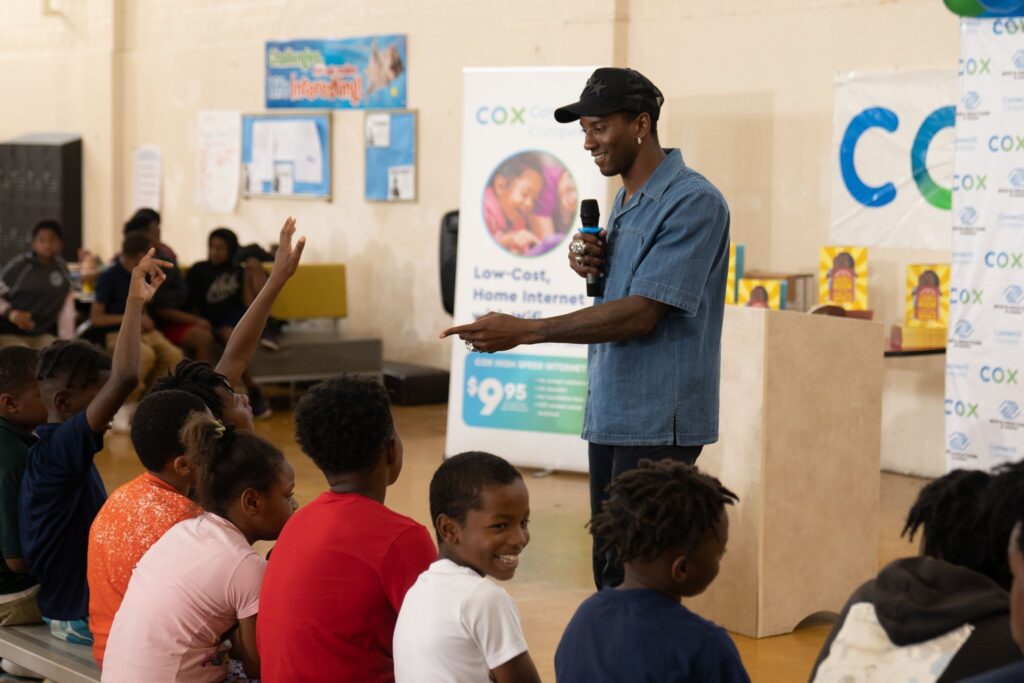
Cox Knocks Down Broadband Barriers
By Amy Maclean
The cable industry has a long history of working to increase broadband adoption, particularly among low-income households. While there have been many notable initiatives over time, Cox Communications’ efforts stand out.
It started back in 2012, when Cox launched a Connect2Compete pilot program in Santa Barbara, California, featuring $9.95/month broad band service. It soon expanded the program across its entire footprint. Over the years, Cox added a partnership with PCs for People to provide devices to eligible customers, and in 2017, it launched the Digital Academy, offering free online educational resources and training to increase digital competency in education, jobs, housing, social media, and more.
Perhaps most visible has been its multi-year partnership with author, Super Bowl champion, and Share the Magic Foundation founder Malcolm Mitchell. In a series of what’s internally referred to as “Malcolm Mitchell Blitzes,” the former New England Patriot visits communities to share the importance of education and staying connected. “When you hear him speak, whether you’re a K-12 kid at a Boys & Girls Club or a leader of a large communications business, he’s very inspirational,” says Cox Communications President Mark Greatrex.
Mitchell joined Cox at the National Press Club in December 2022 in an event highlighting Cox research that found 70% of adults in affordable broadband programs found a job after being unemployed or a better job, 69% reported being able to perform at a higher level at work and 49% received a promotion or increase in pay. “I don’t think I was fully invested in understanding digital equity until I started the partnership with Cox. I try to encourage [children], especially when we visit a Boys & Girls Club to introduce a Cox Innovation Lab, to understand that this is something you can use to explore your curiosity, to give you the tools and information you need to make a series of good decisions that lead you to your desired outcome,” Mitchell told us at the time.
It’s also worth noting that this marks Cox’s 20th year working with Boys & Girls Clubs of America, which has been an important partner in the company’s digital equity efforts.
Like other ISPs, Cox saw the demise of the Affordable Connectivity Program. Greatrex said Cox’s marketing and sales teams have been planning for the potential sunset since the beginning of the year and have a broad range of landing spots to keep recipients connected.
When it comes to why affordable broadband is so important to Cox, Greatrex points to parent company Cox Enterprises’ initiative to help 34 million people live more prosperous lives by 2034. “All of us who work at Cox, we have a mission to build a better future for the next generation,” he says. “It all stems from our heritage and our culture… And it’s deep-rooted in terms of what each of our businesses do to build a better future. So digital equity is clearly one of those massive drivers of prosperity and great educational outcomes and career outcomes.”
As America races to connect all households Greatrex is quick to note that this is a joint effort. “We feel really wonderful to have been singled out for the Broadband Affordability Award, but I would say kudos to all our peers in the cable industry because I think collectively, we’ve been focused on digital equity,” he says. “We are but one of many peers who’ve worked very, very hard. So, we’re accepting this on behalf of the whole industry.”